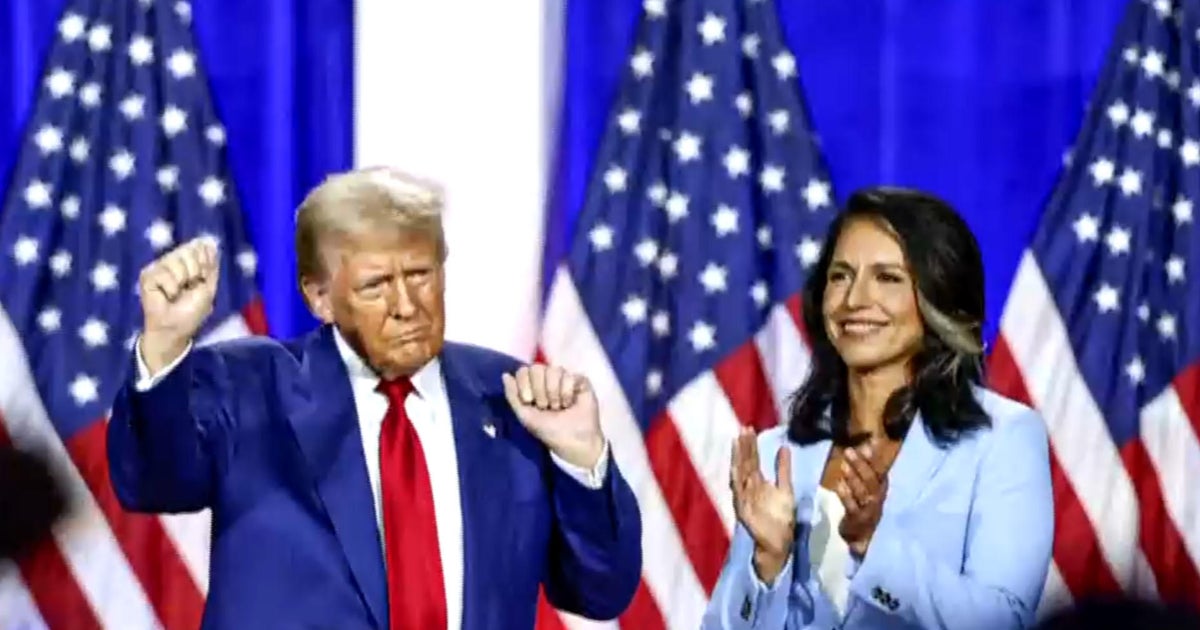CBS News
4 signs that you need long-term care insurance, according to experts

Yuri Arcurs peopleimages.com/Getty Images
Healthcare costs have been on the rise for decades. While this impacts virtually every American, those on limited incomes — like seniors and retirees, for example — are uniquely affected.
This is especially true when you consider the high costs of long-term care, which many older Americans will need as they age (seven out of 10, in fact, according to insurance company Genworth.) The typical nursing home runs from $8,669 to $9,733 per month, while in-home care ranges between $5,720 to $6,292.
Fortunately, there are insurance options — like long-term care insurance — that can help you and your loved ones deal with these rising costs. But is this unique form of insurance best for you? We asked some experts but their thoughts on how to tell if long-term care insurance is right for you.
You can easily explore your long-term care insurance options online now.
4 signs that you need long-term care insurance, according to experts
Here are four indications that you may require long-term care insurance, according to the experts we spoke to.
You’re over 50
While long-term care usually isn’t needed until much later in life, your 50s are the “sweet spot” for getting long-term care insurance, according to Dan Schulte, senior vice president of annuities and insurance at Benjamin F. Edwards.
“These contracts require medical underwriting, so the later someone waits to purchase coverage, the less likely they are to qualify for care, and the more costly the premiums,” Schulte says.
Your 50s are also a time when you may have more funds to put toward added retirement and health needs.
“At that point, retirement is front of mind, and people begin to seriously think about situations that they may have struggled to fathom earlier in their lives,” says James Bremis, a senior financial planner at Sentinel Benefits & Financial Group. “When you’re younger, there are usually a lot of other competing priorities — kids, college funding, etc.”
Learn more about your long-term care insurance options here.
You’re still in good health
It’s important to consider long-term care insurance before you actually need it — meaning before any chronic conditions have developed or you’re unable to fully care for yourself.
“Long-term care insurance is not a good fit for people who already have complicating, chronic medical conditions that would prohibit them from qualifying for the medical underwriting required,” says Bill Comfort, director of training at Certification for Long Term Care and owner of Comfort Assurance Group.
Getting your policy when you’re healthy won’t just help you qualify, though. It can also get you lower premiums.
You want to maintain a comfortable retirement
Long-term care insurance can prevent you from dipping into your retirement funds too far, so if you’re worried about maintaining a comfortable lifestyle as you age, it may be worth a look.
This is a particularly important consideration for couples, Comfort says, as often one will need long-term care before the other, leaving the still-independent spouse with little financial resources.”For couples where one needs care, most can’t afford that extra monthly expense without seriously jeopardizing their ongoing lifestyle and financial security,” Comfort says.
You have no caretaker options
Finally, you should also look into long-term care insurance if you have no caretaker options (kids, spouse, etc.) or you don’t want those loved ones to deal with the responsibility and costs of your care.
“Long-term care insurance is also for those who don’t want to burden their children or family members should care be needed,” says Suzanne Haslam, senior vice president at insurance and benefits firm Woodruff Sawyer. “It will allow someone to pay for outside or in-home care that they need.”
See how much a long-term care insurance policy could cost you here.
Getting the insurance you need
If you do opt for long-term care insurance, shop around for your insurer first. Eligibility requirements and premiums can vary from one company to the next, so comparing options can help you get the best coverage and price.
“You can also see if your employer offers a group sponsored program where you can take advantage of group discounted pricing,” Haslam says. “Or you can talk to a licensed agent who can help you explore the options in the individual marketplace.”
CBS News
Trump makes more Cabinet picks but some top economic posts remain unfilled

Watch CBS News
Be the first to know
Get browser notifications for breaking news, live events, and exclusive reporting.
CBS News
Open: This is “Face the Nation with Margaret Brennan,” Nov. 24, 2024

Watch CBS News
Be the first to know
Get browser notifications for breaking news, live events, and exclusive reporting.
CBS News
Popular gluten free tortilla strips recalled over possible contamination with wheat

A food company known for popular grocery store condiments has recalled a package of tortilla strips that may be contaminated with wheat, the U.S. Food and Drug Administration said Friday. The product is meant to be gluten-free.
Sugar Foods, a manufacturing and distribution corporation focused mainly on various toppings, artificial sweeteners and snacks, issued the recall for the “Santa Fe Style” version of tortilla strips sold by the brand Fresh Gourmet.
“People who have a wheat allergy or severe sensitivity to wheat run the risk of serious or life-threatening allergic reaction if they consume the product,” said Sugar Foods in an announcement posted by the FDA.
Packages of these tortilla strips with an expiration date as late as June 20, 2025, could contain undeclared wheat, meaning the allergen is not listed as an ingredient on the label. The Fresh Gourmet product is marketed as gluten-free.
Sugar Foods said a customer informed the company on Nov. 19 that packages of the tortilla strips actually contained crispy onions, another Fresh Gourmet product normally sold in a similar container. The brand’s crispy onion product does contain wheat, and that allergen is noted on the label.
U.S. Food and Drug Administration
No illnesses tied to the packaging mistake have been reported, according to the announcement from Sugar Foods. However, the company is still recalling the tortilla strips as a precaution. The contamination issue may have affected products distributed between Sept. 30 and Nov. 11 in 22 states: Arizona, California, Colorado, Florida, Georgia, Iowa, Idaho, Illinois, Indiana, Maryland, Maine, Michigan, Minnesota, North Carolina, New Jersey, Ohio, Oregon, Pennsylvania, Texas, Utah, Virginia and Washington.
Sugar Foods has advised anyone with questions about the recall to contact the company’s consumer care department by email or phone.
CBS News reached out to Sugar Foods for more information but did not receive an immediate reply.
This is the latest in a series of food product recalls affected because of contamination issues, although the others involved harmful bacteria. Some recent, high-profile incidents include an E. coli outbreak from organic carrots that killed at least one person in California, and a listeria outbreak that left an infant dead in California and nine people hospitalized across four different states, according to the Center for Disease Control and Prevention. The E. coli outbreak is linked to multiple different food brands while the listeria outbreak stemmed from a line of ready-to-eat meat and poultry products sold by Yu-Shang Foods.




